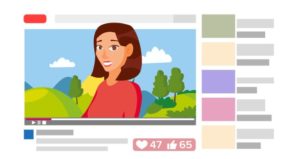Simple Tips for Improving Your Online Videos
Videos grab the viewer’s attention better than any other form of online education content, and with webcams built into nearly all laptops, and cheap external ones available from any electronics store, a straightforward webcam shot is probably the easiest type of video to make. Plus,





